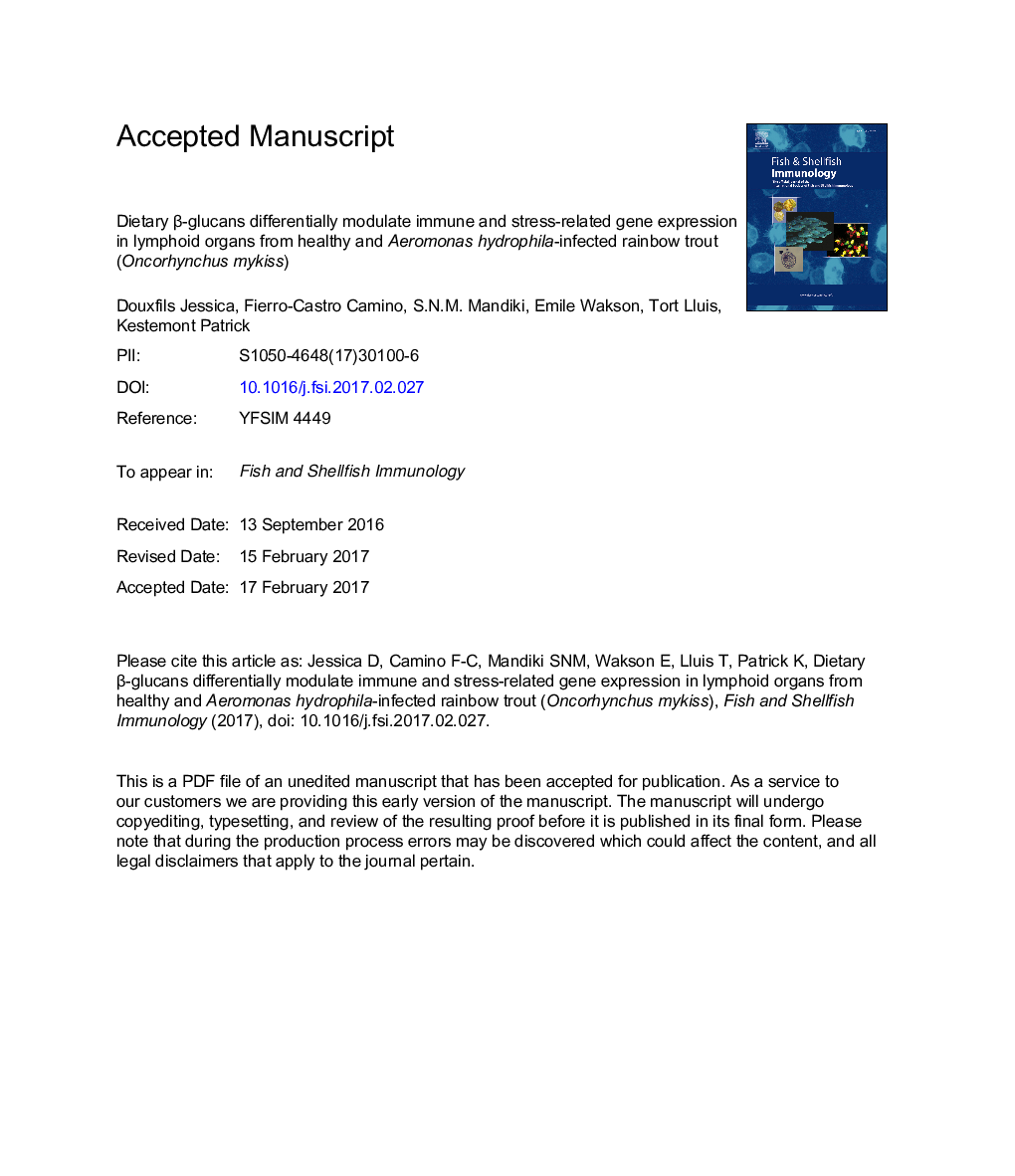| Article ID | Journal | Published Year | Pages | File Type |
|---|---|---|---|---|
| 5540929 | Fish & Shellfish Immunology | 2017 | 45 Pages |
Abstract
Although β-glucans stimulating effects have already been demonstrated on the immune system of numerous animal species, available data remain relatively variable and more research should be done regarding the complexity of underlying mechanisms. In this context, the present study aimed to evaluate the stress and immune-related effects of dietary β-glucans (i.e. Macrogard®) by considering a number of influencing factors such as the dose (0, 0.1, 0.2 and 0.5% in food), feeding duration (15 versus 30 days), tissue (blood, kidney, spleen, gills) and infection status (healthy or infected). Blood parameters (lysozyme, ACH50 activities, leucocyte populations) and mRNA expression level of several immune- and stress-related genes (TFN-α1, IL-1β, IL10, COX-2, TGF-β, MC2R, HSP70) were measured. Our results suggest that spleen may be a highly responsive organ to dietary β-glucans both in healthy or infected fish, and that this organ may therefore significantly contribute to the immune reinforcement induced by such immunostimulatory diet. Our study further reveals that overdoses of β-glucans and/or prolonged medication can lead to a non-reactive physiological status and, consequently, to a poor immune response. All in all, the current data emphasizes the need for further extensive research in the field of dietary β-glucans as a preventive method for farmed fish protection.
Related Topics
Life Sciences
Agricultural and Biological Sciences
Aquatic Science
Authors
Jessica Douxfils, Camino Fierro-Castro, S.N.M. Mandiki, Wakson Emile, Lluis Tort, Patrick Kestemont,
